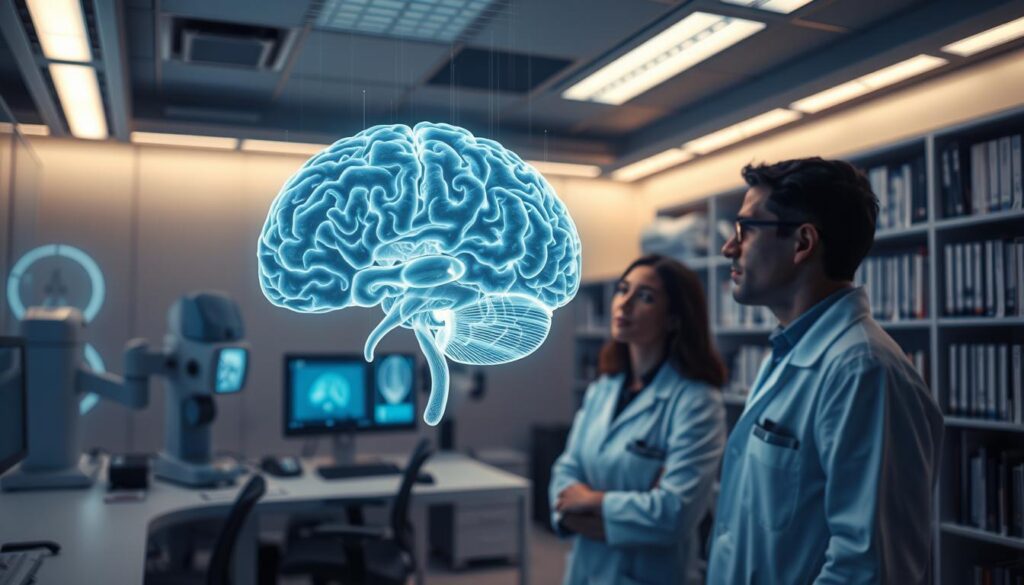Psychiatry: Discover the science of mental wellness through diagnosis, treatment, and prevention.
Did you know that one in four people worldwide will experience a mental health disorder each year? This staggering statistic underscores the critical role of psychiatry in addressing these conditions. Psychiatry is a medical specialty dedicated to the diagnosis, prevention, and treatment of mental, emotional, and behavioral disorders. It serves as the cornerstone of mental health care, offering evidence-based treatments that improve patients’ quality of life.
The foundation of psychiatric care begins with a thorough evaluation. This includes a detailed case history and a mental status examination to identify symptoms and diagnose conditions accurately. Psychiatrists use standardized diagnostic manuals like the DSM-5 and ICD-11 to assess mental disorders, ensuring consistency and precision in treatment plans.
Treatment options in psychiatry have evolved significantly over the years. From pharmacotherapy to psychotherapy and community-based interventions, modern psychiatry offers a holistic approach to mental health management. This blend of scientific advancements and compassionate care highlights the field’s commitment to improving patient outcomes.
In this article, we will explore the historical development of psychiatry, its diagnostic methods, and the latest advancements in treatment. We will also delve into ongoing research, ethical considerations, and the future of mental health care. By understanding the science behind psychiatry, we can work together to reduce stigma and promote mental wellness for all.

Key Takeaways
- Psychiatry is a medical specialty focused on diagnosing and treating mental health disorders.
- Initial evaluations include case histories and mental status exams to assess symptoms.
- Treatment options have evolved from pharmacotherapy to community-based interventions.
- Psychiatry combines scientific research with compassionate patient care.
- This article covers the history, diagnostics, treatments, and future of psychiatry.
The Essence of Psychiatry and Its Role in Mental Health
Psychiatry, a medical specialty, plays a vital role in addressing mental health disorders. Originating from Johann Christian Reil’s work in 1808, it has evolved to blend neurobiological and psychosocial approaches, offering comprehensive care for conditions like schizophrenia and suicide prevention.
Definition and Historical Context
Historically, psychiatry shifted from psychoanalysis to modern scientific methods, now emphasizing evidence-based treatments. This evolution has refined diagnostic criteria, enabling precise management of mental health disorders.
Core Principles of Modern Psychiatry
Today, psychiatry integrates biological and psychosocial models, focusing on research-driven treatments. Practitioners bridge historical insights with current practices, adapting to scientific advancements and cultural shifts to improve patient outcomes.
The Evolution of Diagnostic Criteria and Research in Mental Health
Diagnostic processes in mental health have transformed significantly over the years, relying on manuals like the DSM-5 and ICD-11 to standardize diagnoses. These manuals structure and organize diagnostic criteria, ensuring consistency and accuracy in identifying mental disorders.
Key Diagnostic Manuals: DSM and ICD
The DSM-5, released in 2013, reorganized disorder categories to reflect contemporary research, marking a shift towards evidence-based revisions. Similarly, the ICD-11, published by the World Health Organization, offers a global standard for mental health diagnoses, emphasizing an interdisciplinary approach.
| Manual | Edition | Key Features | Publication Year |
|---|---|---|---|
| DSM | 5 | Reorganized disorder categories, incorporated dimensional assessments | 2013 |
| ICD | 11 | Global standard, emphasis on clinical utility and simplicity | 2018 |
These updates reflect advancements in research, improving patient care through precise diagnostic criteria. The evolution of these manuals underscores the commitment to evidence-based practices in mental health.

Approaches and Methods for Effective Treatment in Psychiatry
Modern psychiatry employs a diverse range of treatments to address mental health disorders, combining both traditional and innovative methods. These approaches are tailored to individual needs, ensuring comprehensive care that addresses the whole person.
Pharmacological Interventions and Psychotropic Drugs
Pharmacotherapy remains a cornerstone of treatment for many mental health conditions. Psychotropic drugs, such as antidepressants and antipsychotics, are prescribed to manage symptoms and improve quality of life. These medications are often used in conjunction with other therapies for optimal results.
Psychotherapy and Community-Based Strategies
Psychotherapy offers a non-pharmacological approach, helping patients understand and manage their conditions through various therapeutic models. Community-based strategies, such as assertive community treatment, provide support in real-world settings, promoting long-term recovery and integration into society.
Current research underscores the effectiveness of both drug-based and non-drug interventions. By integrating these methods, psychiatry provides personalized care that adapts to each patient’s unique circumstances, fostering better outcomes and enhanced well-being.
Recognizing Psychiatric Disorders and Their Symptoms
Identifying psychiatric disorders requires a careful evaluation of symptoms, which often involves mental status exams and psychological assessments. These tools help differentiate between various mental health conditions, ensuring accurate diagnoses.
Practitioners typically conduct interviews and cognitive tests to assess symptoms. Laboratory tests may also be used to rule out physical health issues that could mimic mental health disorders. Recognizing subtle changes in behavior or mood is crucial for early detection.
One of the challenges in psychiatry is distinguishing between disorders with overlapping symptoms. For instance, anxiety and depression can present similarly, making diagnosis tricky. However, a thorough assessment helps clarify the condition, aiding in creating an effective treatment plan.
Early detection is vital for successful outcomes. Timely intervention can significantly improve the quality of life for individuals with mental health conditions. By understanding the signs and seeking professional help, patients can receive the appropriate care they need.
Interdisciplinary Research and Advancements in Psychiatry
Modern psychiatry has witnessed remarkable progress through collaboration with fields like neurology, genetics, and cognitive science. These interdisciplinary efforts have deepened our understanding of mental health disorders and improved treatment approaches.
Neuroimaging and Biomarkers
Neuroimaging techniques, such as MRI and PET scans, have become essential tools in psychiatry. They help identify biomarkers that clarify brain function and neurological processes. These biomarkers are crucial for diagnosing disorders and developing targeted treatments.

By studying brain activity, researchers can pinpoint abnormalities linked to specific mental health conditions. This insight enables earlier detection and more precise interventions.
Genetic Studies and Cognitive Assessments
Genetic research has revealed how certain genes contribute to mental health disorders. Cognitive assessments further enhance this understanding by evaluating mental processes like memory and decision-making.
These studies help tailor treatments to individual needs, improving effectiveness and reducing side effects. Collaboration between psychiatrists and geneticists has opened new avenues for personalized care.
Emerging Research Trends
Current research focuses on integrating neuroimaging, genetics, and cognitive science. Innovations like AI-driven analytics are being explored to predict disorder risk and optimize treatments.
Early detection and intervention are critical for better outcomes. As research evolves, psychiatry is moving towards more precise and compassionate care.
Psychiatry in Practice: Diagnosis, Management, and Innovation
Modern psychiatry is a dynamic field that combines thorough diagnostic techniques with cutting-edge treatment methods. Psychiatrists play a central role in patient care, working within hospitals and community settings to provide comprehensive support.
The Integral Role of Psychiatrists in Patient Care
Psychiatrists are essential in managing mental health disorders through detailed evaluations and innovative treatments. They work in multidisciplinary teams to ensure holistic care, addressing both physical and mental aspects of health.
The diagnostic process involves mental status exams and psychological assessments to identify symptoms accurately. These tools help differentiate between disorders, ensuring precise diagnoses and effective treatment plans.
Innovative approaches, such as integrating research findings into daily practice, enhance patient care. Psychiatrists also collaborate with other specialists, improving both diagnosis and management through a team-based approach.
Case studies highlight effective patient management strategies in clinical settings. For instance, a patient with complex symptoms benefited from a tailored treatment plan developed by a multidisciplinary team, showcasing the importance of collaboration in psychiatry.
By combining scientific advancements with compassionate care, psychiatrists continue to improve patient outcomes. Their work is vital in promoting mental health and well-being in various clinical environments.
Ethics and Challenges in the Field of Psychiatry
Ethical considerations are central to psychiatric practice, shaping how mental health disorders are diagnosed and treated. International guidelines, such as the Declaration of Hawaii and the Madrid Declaration, have established frameworks to ensure ethical conduct.
Ethical Guidelines and Professional Conduct
Professional codes of conduct, set by organizations like the World Psychiatric Association, emphasize respect for patient autonomy and informed consent. These guidelines ensure that psychiatrists maintain high ethical standards, balancing patient rights with effective treatment.
Controversies and Misconceptions in Treatment
Debates surround certain treatments, such as electroconvulsive therapy, due to misconceptions about their efficacy and potential side effects. Historically, practices like lobotomy have sparked ethical discussions, prompting revisions in professional conduct standards.
| Guideline | Year | Key Features |
|---|---|---|
| Declaration of Hawaii | 1977 | Established ethical standards for psychiatrists worldwide. |
| Madrid Declaration | 1996 | Emphasized patient rights and professional integrity. |
By navigating ethical dilemmas and addressing controversies, psychiatry maintains public trust. Continuous revisions of ethical standards reflect the field’s commitment to compassionate and effective care.
Conclusion
Mental health is a cornerstone of overall well-being, and the field of psychiatry plays a pivotal role in addressing mental health disorders. This article has explored the evolution of psychiatric practices, from diagnostic criteria to innovative treatments, highlighting the importance of ethical considerations and interdisciplinary research.
By understanding the history of psychiatry and its current methods, we can better appreciate the advancements in mental health care. The integration of neuroimaging, genetic studies, and psychotherapy has revolutionized treatment approaches, offering hope for those affected by mental health disorders.
As we look to the future, continued research and innovation will be essential in shaping the field. Psychiatrists remain at the forefront of providing comprehensive care, ensuring that patients receive the support they need. Together, we can work towards a future where mental health is prioritized, and effective treatments are accessible to all.
FAQ
Q: What is the role of psychiatry in mental health?
A: Psychiatry plays a crucial role in mental health by diagnosing and treating mental disorders. Psychiatrists use a combination of psychotherapy and medications to help patients manage conditions like schizophrenia and depression. Their work is essential for improving mental wellness and quality of life.
Q: How are mental health disorders diagnosed?
A: Diagnoses are made using manuals like the DSM-5 and ICD-11, which list symptoms and criteria for disorders. Psychiatrists also conduct thorough assessments, including patient history and physical exams, to ensure accurate diagnoses.
Q: What treatments are commonly used for mental disorders?
A: Treatments often involve psychotherapy, such as cognitive-behavioral therapy, and psychotropic medications. Lifestyle changes and support groups can also be effective, depending on the disorder and patient needs.
Q: How can someone manage schizophrenia symptoms?
A: Managing schizophrenia involves consistent medication use, therapy, and support systems. Regular check-ups with a psychiatrist and healthy lifestyle choices are key to managing symptoms effectively.
Q: What are the risk factors for suicide?
A: Risk factors include mental health disorders, substance abuse, and traumatic events. Recognizing these signs and seeking help is crucial for prevention and support.
Q: How does personality affect mental health?
A: Personality traits can influence mental health, with certain traits potentially increasing the risk of disorders. Understanding personality can help tailor treatments to individual needs.
Q: Are there new drugs for mental health treatment?
A: Yes, research continues to develop new medications. These drugs aim to improve treatment efficacy and reduce side effects, offering hope for better mental health management.
Q: How does research impact mental health care?
A: Research advances our understanding of mental health, leading to improved treatments and therapies. Studies on genetics and neuroimaging are particularly influential in this field.
Q: What are the best ways to reduce suicide attempts?
A: Reducing access to lethal means, increasing social support, and improving mental health services are effective strategies. Early intervention and education are also vital.
Q: How does a mental health spectrum affect treatment?
A: The spectrum approach recognizes that mental health exists on a continuum, allowing for more personalized treatments. This ensures that interventions are tailored to each individual’s needs and circumstances.
